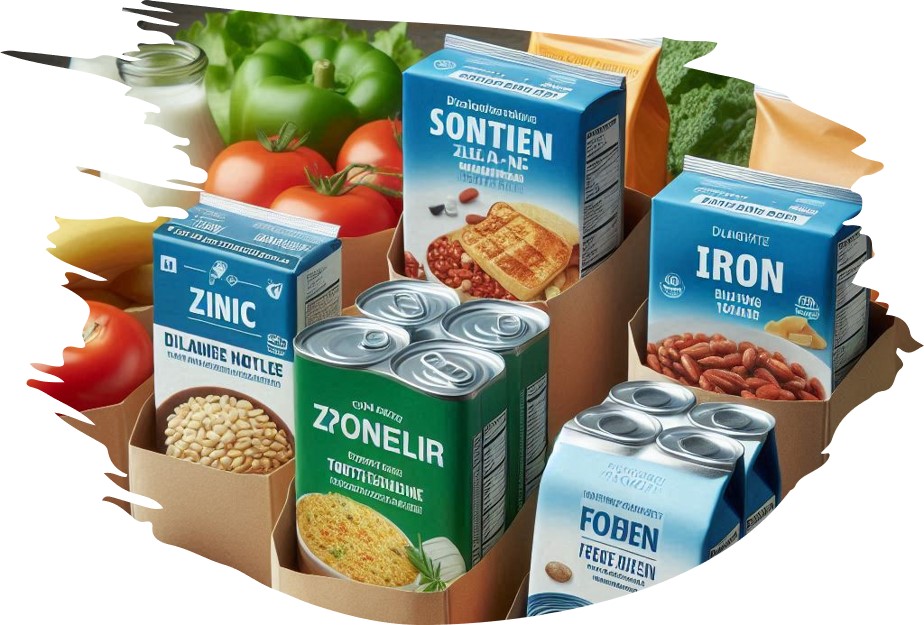The Benefits of Organic Food Production System: Farmers, Climate
and Consumers
When you think of organic farming, you might wonder if it's worth the effort. Let's clear the air and explore the benefits organic food production systems bring you, the climate, and consumers. You'll find that these benefits are compelling, supported by a range of sources, and can give you a fresh perspective on your farming practices.
Organic Food Production System and Farmers
When you think of organic farming, you might wonder if it's worth the effort. Secondly, there may be some confusion about what organic farming is and what not.
- Organic agriculture refers to farming without synthetic inputs such as synthetic fertilizers, pesticides, plant growth regulators, nanomaterials, and genetically modified organisms (GMOs).
- Organic does not necessarily mean "chemical-free" or "pesticide-free." Chemicals are still used in organic farming but cannot be synthetically manufactured.
- Organic livestock must be fed organically certified feed, and antibiotics cannot be used throughout their lifetime (except in emergencies).
- Animal welfare standards for organic certification often require livestock to have access to the outdoors
Let's clear the air further and explore the benefits organic food production systems bring you, the climate, and consumers. You'll find that these benefits are compelling, supported by a range of sources, and can give you a fresh perspective on your farming practices.
Organic Food Production System for Farmers
 Generated with AI
Generated with AIFirst and foremost, organic farming can significantly benefit farmers. One of the key advantages is improved soil health. According to the Rodale Institute, organic farming practices, which include crop rotation and using natural fertilizers, enhance the organic matter in the soil. This boosts soil fertility and helps retain moisture, which is especially crucial during dry spells. You don't have to rely heavily on chemical inputs, which can be expensive and harmful over time.
Moreover, organic farming can open new market opportunities. Consumers are increasingly seeking organic products, willing to pay premium prices for foods free from synthetic pesticides and fertilizers. By tapping into this growing market, you can potentially increase your income. A study published in the journal "Agriculture and Human Values" highlights that by transitioning to organic farming, farmers can benefit from the increased demand for organic produce, which often translates into higher profit margins.
Organic Food Production System and Climate
Organic farming also plays a pivotal role in combating climate change. When you adopt organic farming methods, you contribute positively to the environment. For instance, by avoiding synthetic fertilizers and pesticides, you reduce the emission of greenhouse gases. The United Nations Food and Agriculture Organization (FAO) reports that organic farming practices can sequester carbon in the soil, thereby reducing atmospheric carbon dioxide levels. This means that through organic farming, you help mitigate global warming.
Furthermore, the emphasis on biodiversity in organic farming makes agricultural ecosystems more resilient. Practices like crop diversification and the use of cover crops can improve the resilience of your farm to climate shocks. The "International Journal of Agricultural Sustainability" notes that farms with higher biodiversity often experience reduced pest and disease pressures, which are anticipated to rise with climate change. So not only do you contribute to the global fight against climate change, but you also make your farm more robust against its impacts.
Organic Food Production System and Food Consumers
Consumers, on the other hand, get significant health benefits from organic foods. Organic products are often richer in nutrients and free from harmful chemicals. A meta-analysis published in the "British Journal of Nutrition" indicates that organic crops have higher concentrations of antioxidants and lower pesticide residue levels than conventionally grown crops. When you produce organic food, you provide healthier options to consumers, which is immensely valued in today's health-conscious society.
Additionally, the trust and transparency associated with organic produce engender consumer loyalty. When consumers know that the food on their plate comes from a farm like yours, which adheres to rigorous organic standards, they are more inclined to support and stick to such products. This relationship of trust not only benefits them but also strengthens your market position.
Further Reading
To help you embark on or improve your organic farming journey, here are some valuable resources that you can access online:
1. Rodale Institute [rodaleinstitute.org: Offers comprehensive guides on organic farming practices and principles.
2. Organic Farming Research Foundation www.ofrf.org: Provides resources and funding opportunities for organic farming research.
3. FAO Organic Agriculture www.fao.org: Contains reports and publications on the benefits of organic farming for food security and climate resilience.
4. eOrganic www.eorganic.info: A community of practice for research, extension, and education in organic agriculture.
5. Local Extension Services: Many universities and agricultural extensions offer online resources and local support for farmers interested in organic agriculture.
In conclusion, the switch to organic farming holds manifold benefits for you as a farmer, the planet, and the end consumers. It offers a promising pathway to more sustainable, profitable, and fulfilling agricultural practices, promising a better future for all.
- Home
- Organic Farming
- Organic Farming System
What's New?
-
What are iron fortified foods?
Iron fortified foods contain additional iron to help prevent deficiencies and support overall health, particularly in children and pregnant women. -
What are fortified foods?
What are fortified foods? How are they different from staple and common everyday foods? -
Baby Organic Food: “To be, or not to be, that is the question”
Baby organic food is free from insecticides, weedicides and residues of synthetic fertilizers thus much safer for babies

DOWNLOAD!



